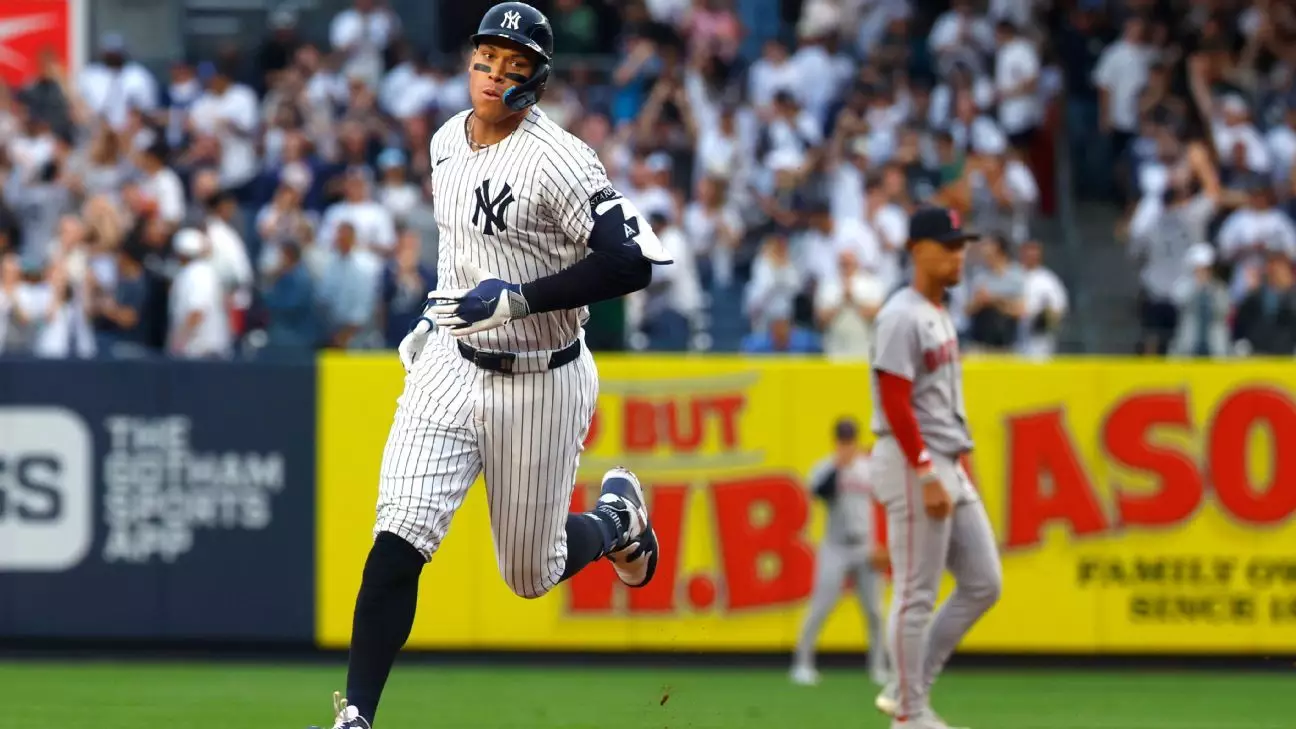In the world of sports, rivalries often underpin the emotional landscape that fans and players navigate—none more electric than that between the New York Yankees and the Boston Red Sox. However, in recent years, this historic feud has felt subdued, almost as if it were an aging storybook that needed a new chapter. Enter Hunter Dobbins, a rookie right-hander for the Red Sox, whose brash declaration that he would retire rather than play for the Yankees served as a catalyst for renewed conversation around this age-old rivalry. It is both fascinating and frustrating to see that while the stakes may feel somehow lower, the same level of passion still exists, manifested through youthful arrogance.
Dobbins’ comments about the Yankees being the last team he would sign with, reported in the Boston Herald, suggest a deep-rooted fanaticism in a culture that often prioritizes franchise loyalty over professional opportunity. While some might see this as an admirable stand against a notorious franchise, one cannot help but feel that such remarks are somewhat reckless coming from a rookie with a mere handful of games under his belt. The audacity of a newcomer to dismiss one of the most storied franchises in baseball raises questions about the wisdom of such bravado. In a sport that prides itself on tradition and history, Dobbins’ attitude feels discordant, perhaps even desperate for attention.
The Judge Takes the Stage
Aaron Judge, the Yankees’ captain and reigning American League MVP, showcased not just talent but also a sense of timing that day. Upon learning of Dobbins’ comments, he stepped to the plate in the series finale, where he promptly hit a two-run homer on the very first pitch from Dobbins—a bold rebuttal infused with power. This moment felt emblematic of what the rivalry could be if injected with genuine, memorable moments instead of mere platitudes and social media banter. It’s stories like these that remind fans why they still care, even amidst a backdrop of lukewarm seasons and lackluster trades.
Judge’s home run traveled an impressive 436 feet, just shy of his personal best for opposite-field bombs. Yet the real question resides in whether this flashy home run revitalized a narrative or merely served as a footnote in an otherwise routine series. Baseball analysts could argue until the cows come home about Judge’s statistical prowess, but the emotional weight of his performance—the timing, the context—meant more than the numbers would suggest. In striking back at Dobbins, Judge wasn’t simply hitting a home run; he was hitting back at a narrative that could have spiraled out of control should the Yankees have continued to struggle away from home turf.
Competitive Spirit or Reckless Stupidity?
Jazz Chisholm Jr.’s take on Dobbins’ statements falls in line with a broader discussion about the culture of competitiveness in baseball. Chisholm offered a nuanced critique, acknowledging Dobbins’ fervor yet pointing out the absurdity of eviscerating a full 30% of career opportunities at such an early stage in his career. How refreshing it would be for baseball culture—and, frankly, for life in any competitive arena—if young players approached their careers with a mindset rooted in professionalism and open-mindedness rather than outright dismissal.
While some fans revel in the increasing theatrics and “trash-talking” that permeate modern sports, the heart of the matter is still the game. Does one player’s petulance serve the overarching narrative of competition, or does it detract from the beauty of the game’s rich history? The answer lies in how players like Dobbins choose to conduct themselves moving forward. Baseball could benefit immensely from personalities who embrace challenges rather than shun them, showcasing not just bravado but also the grace of humility.
In the end, the Yankees and Red Sox are intertwined in a tapestry of narrative, history, and sheer competition. Each new season brings refreshing storylines—some promising, others problematic—but perhaps it’s time we embrace a more complex discussion about what it means to be part of this indelible rivalry. As the rivalry reignites in the minds of both players and fans, one can only hope that it evolves into something that transcends mere soundbites and boasts, striking a balance between historical respect and youthful ambition.



Leave a Reply